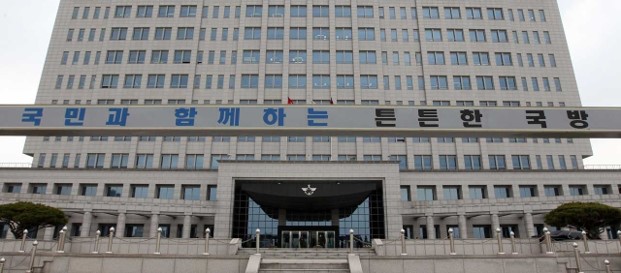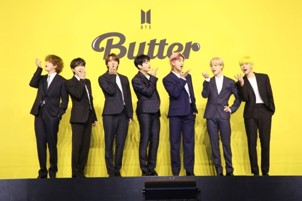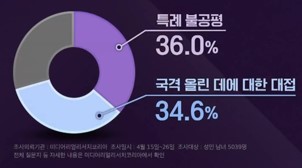National Loss or Undermining Equity: Is It Time for BTS to Join the Military?

From ranking first in countless charts, including the renowned Billboard Hot 100 and 200, to dominating numerous global awards, Bangtan Sonyeondan (BTS)’s contribution to the promotion and propagation of Korea and its culture to the international community is immeasurable. At the forefront of the ever-growing Korean Wave, which particularly thrived during COVID-19 as a result of people becoming weary of the seemingly endless pandemic longing for mirth, it can be said that BTS’ global influence is simply unstoppable—or is it?
What many international fans seem to overlook or are unaware of is that Korea practices conscription—all male citizens are obliged to participate in compulsory military service by law. Thus far, BTS had been deferring their conscription, but in Dec. 2022, Jin, the oldest member of the group, turns 30, the maximum age to which military service can be postponed, with other members facing the same fate in the following years. In other words, 2022 may end up being BTS’ last year of service as cultural ambassadors for a while. In recognition of their contribution, attempts have been made to alter the law to exempt BTS from compulsory military service, but they were not without their difficulties. As of now, the public opinion is fiercely divided as to whether or not to grant BTS military exemption, and an agreement is yet to be reached. The Sogang Herald aims to examine both sides of the argument and suggest an ideal direction that would possibly help to resolve the long-lasting controversy.
Korea’s Conscription Policy
Though conscription is being carried out in a multitude of countries, Korea is unique in that it is a divided nation still at war. Not only is it widely accepted as a deed—albeit one that is feared greatly—to defend the country, but it is also stated in the law, specifically, the Military Service Act[1], that “Every masculine gender of the Republic of Korea shall faithfully perform compulsory military service, as prescribed by the Constitution of the Republic of Korea and this Act.” Exceptions do exist, however; apart from those who are deemed unsuitable as a result of poor physical or mental health, those who engage in sports or fine arts professions and have promoted national prestige by performing exceptionally well can be qualified as Arts and Sports Personnel[2] and be eligible for exemption. The current criteria are as such; to qualify as sports personnel, one must rank third or higher in the Olympic Games or first in the Asian Games, whereas to qualify as arts personnel, one must rank second or higher in international arts competitions specified by the Military Manpower Administration[3].

▲ Members of BTS
The Current Situation of BTS
One might wonder why BTS’ military service is subject to such controversy. Would they not meet the qualifications for Sports and Arts Personnel, considering their overwhelming performance and accomplishments? Unfortunately, with the law in question, matters are more complicated. Simply put, BTS do not fall under any category for military exemption, as the policy for arts personnel only includes those who engage in fine arts. In order for BTS to be even considered, a new policy regarding popular culture must be established, the discussion for which having been ongoing for several years already, but to no avail—not quite ideal when BTS have less than a year before their members are subject to conscription. Another option would be to amend existing laws to include BTS specifically, but more likely than not, this would only end up opening the floodgates to even greater controversy regarding possibly unfair preferences towards particular individuals or groups.
Whether BTS should be exempted from military service at all is also a subject of fierce debate. Those who support the idea of exempting them from military service argue that allowing them to keep on performing as musicians would be far more beneficial for the country than having them serve in the military for two years. As the Culture, Sports, and Tourism Minister Hwang Hee puts it, “Despite clearly promoting national prestige, pop artists (BTS) perforce have to halt their careers due to compulsory military service. This results in a great loss not only to Korea’s cultural capital, but also to the entire world’s.”
It is undeniable that BTS have massively contributed to Korea’s prestige both in terms of economy and culture. For instance, the 2019 BTS Seoul Concert alone managed to attract over 1.8 billion international visitors, more than two-thirds of that of the 2018 Pyeongchang Olympics, generating an estimated ₩1 trillion for the Korean economy. BTS have also actively promoted Korean culture through their performance, which, coupled with their global influence, helped not only to introduce it to the international community, but also to preserve and protect it from China’s Northeast Project which attempted to distort Korean history and culture and assimilate them into their own. In this sense, it could be said that BTS have contributed far more to promoting Korea’s prestige than most athletes in the national team, the typical beneficiaries of the military service exemption policy.

▲ International fans of BTS outside Times Square Studios
This raises the question—does simply benefitting the country justify exemption from compulsory military service? Those who are against the idea of exempting BTS from military service argue that doing so will undermine equity. Firstly, unlike athletes in the national team, popular culture artists—including BTS—are merely members of private corporations[4]. They may promote national prestige through their performance, but their primary interest is in making profits, and in the case of BTS, they have been rather successful at it. They are by no means representatives of the country, and therefore, regardless of their influence, they ought not be excessively praised as cultural heroes. Giving BTS, who are already overwhelmingly successful both in terms of fame and wealth, additional benefits such as exemption from compulsory military service would not only be against equity, but also marginalize the common citizens who are subject to conscription and, as a result, induce relative deprivation amongst them. They did not devote two years of their youth to the military just because they failed to promote national prestige but handing out exemptions simply for benefitting the country could end up justifying this proposition.
Another issue is that there are no objective criteria to judge BTS’ performance. Commonly mentioned milestones of BTS, such as ranking first in a multitude of music charts, are all based on the number of albums sold, or fame, rather than a clear judgement of their performance. As is the nature of popular culture, fame does not necessarily correspond to the artists’ skills, abilities, or efforts. As a matter of fact, sheer luck and timing may as well be a bigger factor in determining whether a pop artist becomes successful or not. Under these circumstances, it would seem unfair to praise and reward them only because they have benefitted the country.
The Controversy Thus Far
The discussion as to whether and how to amend the law to allow BTS to be exempted from compulsory military service has been ongoing for several years without a clear answer. As is the norm with politics in Korea, rather than trying to arrive at a consensus, the politicians on each side—namely those of the Democratic Party of Korea and the People Power Party respectively—are merely disagreeing with each other for the sake of disagreeing. Recently, Member of Parliament Sung Il-jong from the People Power Party stated that the issue of whether to include popular culture in the Arts and Sports Personnel policy would likely be resolved within the National Assembly by the end of April 2022, but nothing has come of it since. One thing is for certain—it is absolutely detrimental both to the politicians and to BTS themselves if the issue regarding exemption from compulsory military service of the world-famous idol group is dragged into an endless, pointless political quarrel. The public opinion is also divided into almost perfect halves; according to a recent opinion poll by Real Research Korea, 36% have disagreed with exempting BTS from compulsory military service, claiming that altering the criteria for exemption based on fame and influence is unfair, whilst 34.6% have agreed, arguing that exemption should be a reward given by the country for those who have promoted national prestige.

▲ A public opinion poll regarding the issue of BTS’ military service exemption by Real Research Korea
BTS themselves have consistently insisted that they “will accept the call of duty should the nation summon them.” However, as of late, Jin, the oldest member of the group, has stated that “the members have completely left the matter of their military service in the hands of their agency.” Jin turns 30 in Dec. 2022, the maximum age to which military service can be postponed, which in itself was deferred as a result of a new amendment in the Military Service Act in 2021. With the rest of the members expected to turn 30 shortly afterwards, it is essential for BTS that, regardless of the outcome, the issue of their military service exemption be resolved promptly, as they must arrange their future plans accordingly.
Towards an Agreement…
Perhaps the single biggest cause of this controversy is the lack of concrete criteria to evaluate the promotion of national prestige for those who engage in the field of popular culture. Though BTS’ feats are indisputable, there is no objective basis on which to determine whether they should qualify as Arts and Sports Personnel. Considering there even used to be an exemption policy for professional Baduk players in the past, this is likely a direct reflection of the rather poor reputation and status of popular culture in Korea, especially contrasting with fine arts professions such as classical music. Unlike in the past, however, times have changed, and popular culture is no longer a genre to be looked down upon—it is undoubtedly enjoyed, cherished, and accepted as a genuine form of art by countless people from various backgrounds. Furthermore, the existing laws regarding exemption from compulsory military service were formerly established in a world that was vastly different from the current one, meaning that they do not correctly reflect reality.[5] Therefore, it is about time these outdated laws got revised and new ones established in order to better suit the rapidly changing times. The Sogang Herald hopes that this controversy gets resolved in the not too distant future and that it provides an opportunity for a more mature military service culture to be settled.
By Kim Tae-uck (Cub Reporter)
ypyitu@sogang.ac.kr
[1] 병역법
[2] 예술체육요원
[3] 병무청
[4] For instance, BTS are part of Big Hit Music.
[5] The Sports and Arts Personnel policy was first introduced during the 1970s, a time when performing outstandingly well in international sports or arts competitions was one of the few possible ways to promote the country.
